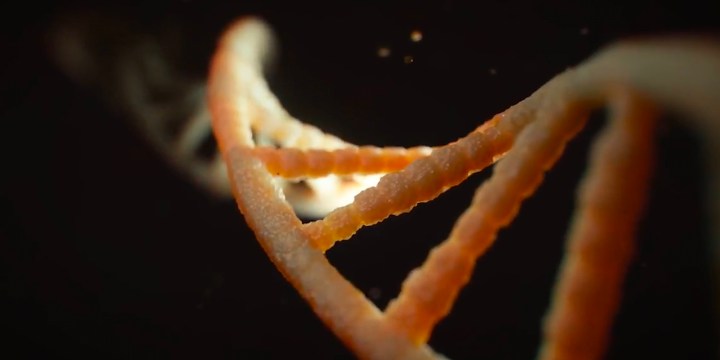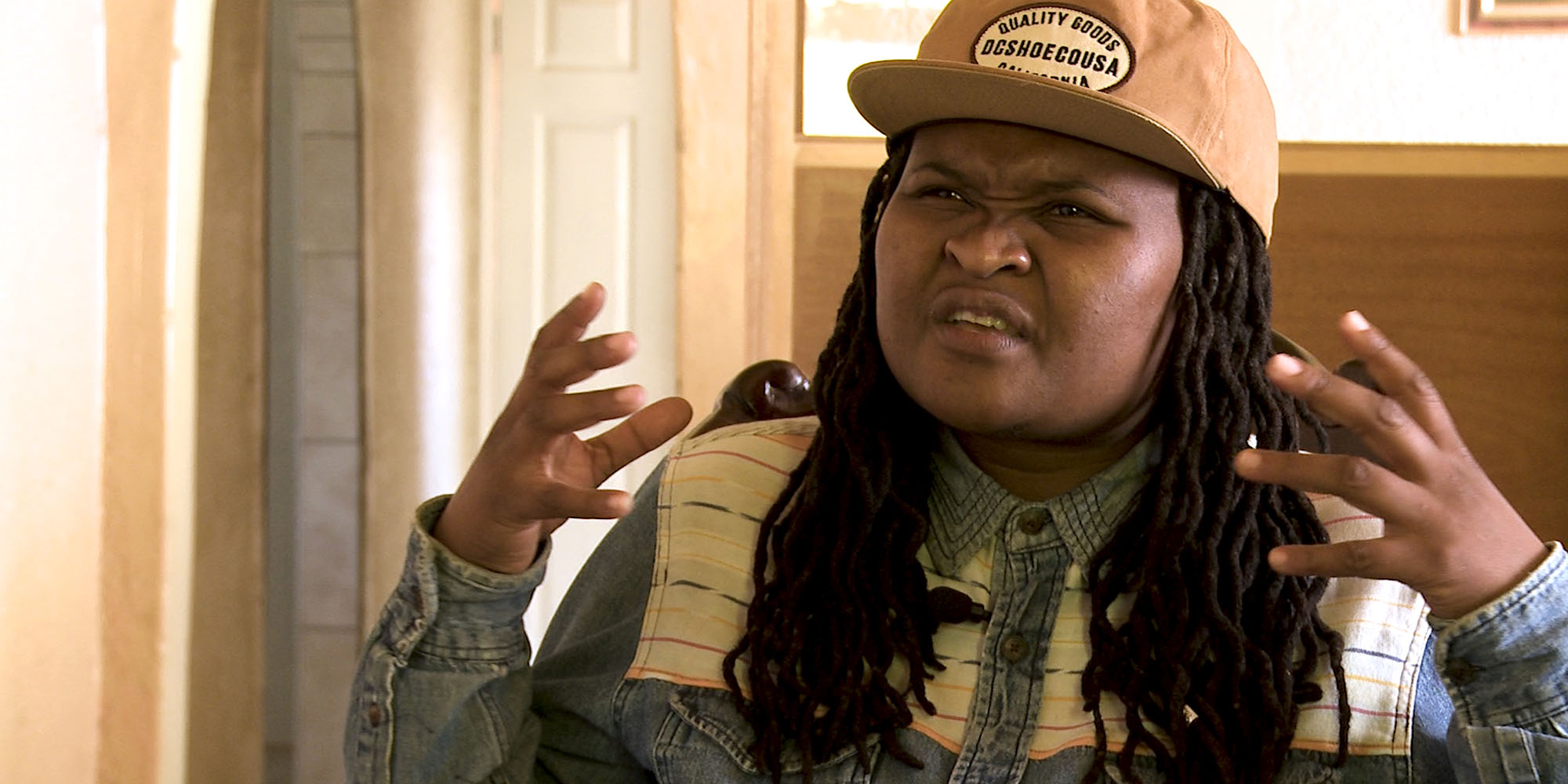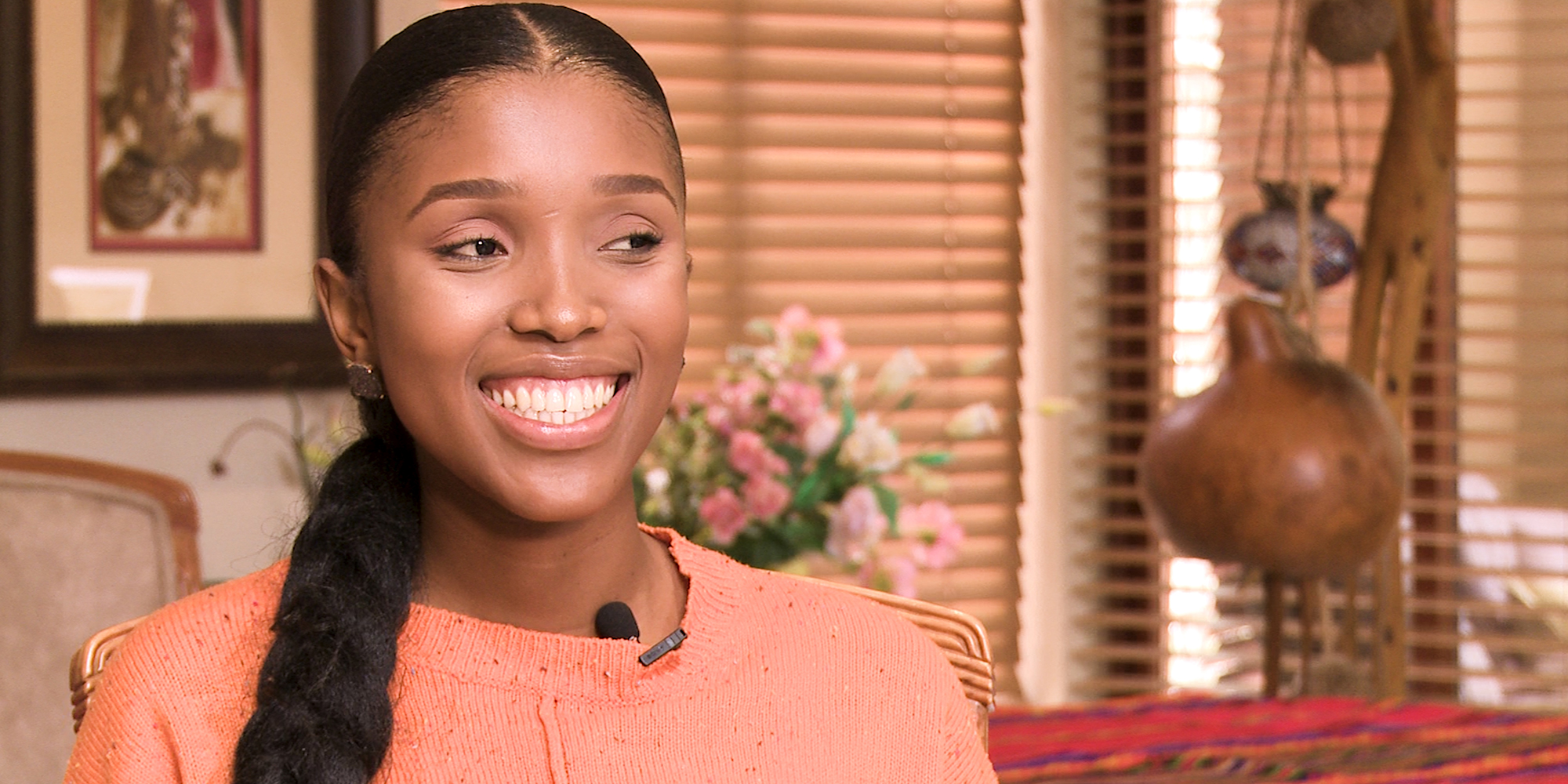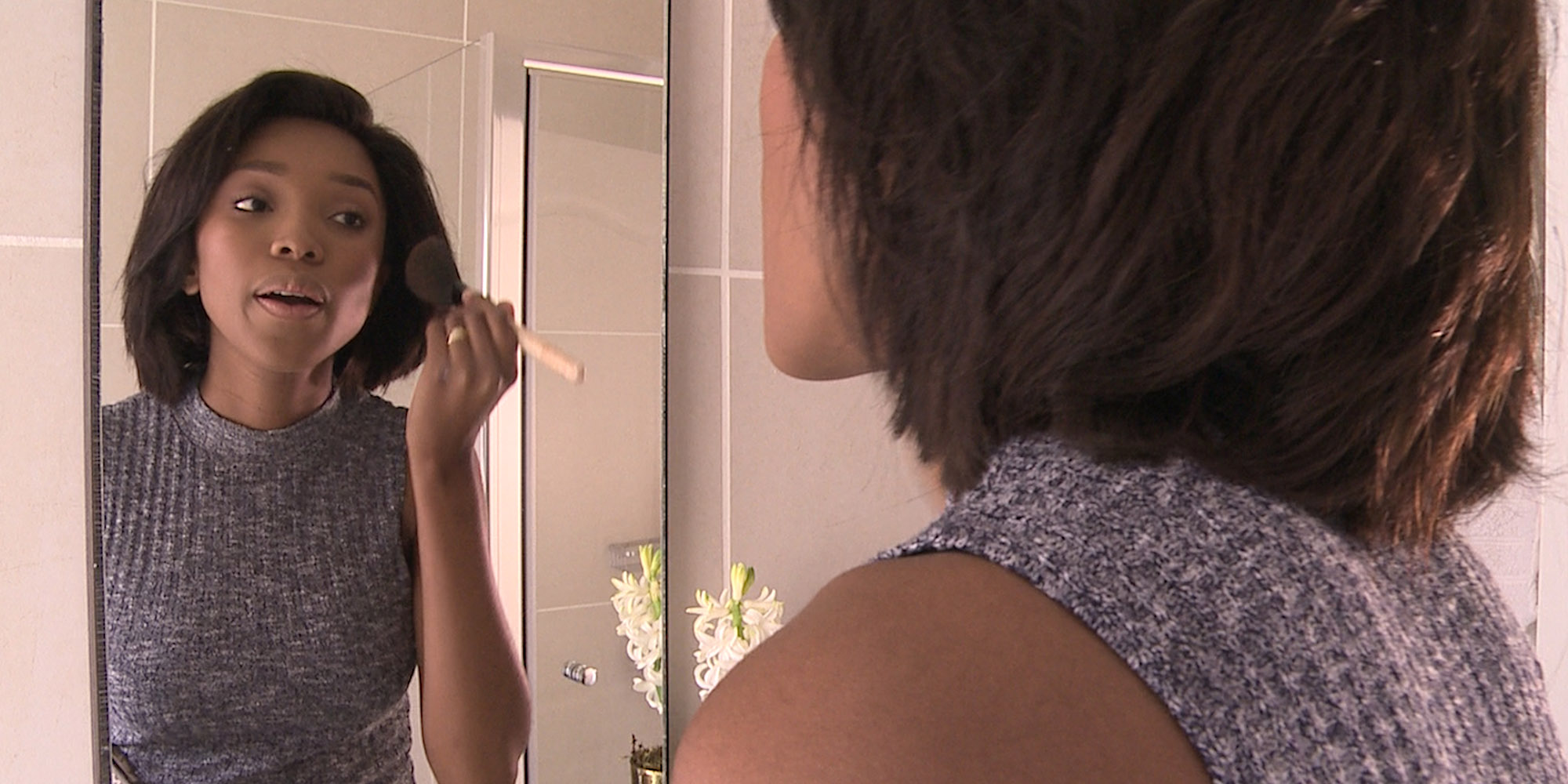HEALTH-E NEWS
Caught in the intersex no-person’s-land

A beauty queen without ovaries and a ‘tomboy’ whose parents asked doctors to make her male – in the aftermath of the international interrogation of Caster Semenya’s body, these two intersex activists speak to HEALTH-E’s Bernadette Maguire about growing up outside traditional notions of being male or female.
The ruling by the International Association of Athletics Federations (IAAF) that track star Caster Semenya has to moderate her testosterone levels if she wants to compete in certain races has sparked furious debate about gender and sex.
But while society expects people to conform to being either male or female, being intersex and fitting somewhere between the two is more complex and common than you might think.
Dr David Segal, a paediatric endocrinologist, says intersex children are born “in about one in 1,500 deliveries”.
“A male baby born with a completely not-normal genitalia, so they could be hypospadias meaning the opening of the urethra is not on the penis but under it, or born with undescended testes – that’s one in a 100. So, it’s common,” says Segal.
“Intersex is a general term used for a variety of conditions in which a person is born with a reproductive or sexual anatomy that doesn’t seem to fit the typical definitions of female or male,” according to the Intersex Society of North America.
“A person might be born appearing to be female on the outside, but having mostly male-typical anatomy on the inside. Or a person may be born with genitals that seem to be in-between the usual male and female types – for example, a girl may be born with a noticeably large clitoris, or lacking a vaginal opening, or a boy may be born with a notably small penis, or with a scrotum that is divided so that it has formed more like labia. Or a person may be born with mosaic genetics, so that some of her cells have XX chromosomes and some of them have XY,” according to the Intersex Society.
Dimakatso Sebidi was born 34 years ago at Baragwanath Hospital on April Fool’s day. She was born with ambiguous genitalia. Her father, Abraham Sebidi, says it was a day he will never forget.

Dimakatso Sebidi says she wants to change how intersex people are seen by society. Image supplied.
“When I arrived at the hospital, my wife told me we were going to change our babies name to Dimakatso,” he reminisces. “I asked her why and she said because Dimakatso means something surprising. She is a surprise.”
Her father says he thought it was a joke at first but when doctors recommended a series of operations to do gender assignment he realised that he was dealing with a unique situation.
“As we had bought clothes for a baby girl as we were expecting a girl we decided to go ahead and have the operations done to turn our baby into a girl.”
It meant six long years in hospital for little Dimakatso. “I used to get pass-outs only for my birthday and family events and I would cry when I had to return to the ward,” remembers Dimakatso.
On those visits home, she recalls that for some family members she was a curiosity.
“My aunts and family friends would go with me to the bathroom and ask me to pull down my pants. They would look and point and laugh and then go out. I never understood what it was all about. What was so different?”
As she grew up she says she developed a fondness for boys’ toys. She loved soccer and rode bicycles.
“She didn’t want dolls she wanted cars and guns,” says Abraham. “She was a tomboy.”
Dimakatso says years later her mother confessed to her that, during that time, she often wondered if the doctors hadn’t taken the wrong “tool”.
Then, as she reached puberty, she found herself attracted to girls and wrestled with herself over these “lesbian tendencies”, wondering why she felt this way.
“In the townships there was a lot of stigma and I remember this one boy used to wait for me when I was coming home from school.” She recalls him threatening her telling that her she is a girl and he is going to change her. Terrified and knowing that many lesbian women in her community have been raped to “fix” them, she tried to evade him and started using different routes home.
It was only when she turned 21 that her parents finally sat her down and broke the news.
“The doctors had told us not to say anything, just to accept it,” says Abraham, “but we had to tell her.”
“There’s no word for intersex in isiXhosa or Zulu or Tsonga,” says Dimakatso. “I was so confused and angry.”
She set out on a journey of self-discovery and in the course of her research, she contacted Cape Town-based intersex activist Sally Gross.
“She was my mentor and she helped me a lot. I learnt so much about myself from her actually.”
Not all intersex individuals are born obviously intersex at birth. Sharon Rose Khumalo only discovered her condition when she was 21.

Sharon Rose Khumalo. Image supplied
“I grew up a normal little girl by all appearances. I wore pink, I grew my hair and it was only when I reached my late teens and I didn’t get my period that we realized there might be something was amiss,” she says.
Sharon says her mother, who was a nurse, attributed this to her being very thin at first but by the time she was 21 they decided to seek advice from a gynaecologist.
“I just thought he would give me some pills or they would need to do a small operation or something,” recounts Sharon.
But the doctor did a sonar and told her that he could not see a uterus and he could not see ovaries. He explained that this fell into a range of intersex conditions.
For Sharon, it was all surreal. “As a biotechnology student, I understood what it meant but I never thought I would be a case study.”
She says her family were incredibly supportive as she grappled with her new identity.“I remember my father asking me how I feel and what I identify as and I said I identify as a woman.”

Sharon Rose Khumalo hasn’t shrunk from the gaze of the world – instead, she is now an activist for the intersex community. Image supplied
She says she will never forget his response. “Well, to me you will always be Daddy’s little girl.”
Some people might have chosen to shrink from the gaze of the world. But not Sharon. She entered several beauty pageants, winning Ms Mamelodi Sundowns and was even a runner up in the 2016 Miss South Africa Contest.
“The judges knew at the time and they were okay with it but it wasn’t public knowledge,” says Sharon.
It was only when one of her friends made a cruel comment in conversation about intersex that she realised it was time to speak up. “I wrote three blog posts and I posted on Instagram.”
She was amazed at the number of people who reached out to her. It was an awakening.
“For such a long time you think that there is something wrong with you and something broken. The more I spoke to these people, the more our experiences were the same. Our diversity is what makes us unique and special.”
But for parents who are faced with the reality in the maternity ward, anxiety and social pressure can be overwhelming, says Dr Segal: “What do you say to family and friends? What do you put on the birth certificate and on the medical aid application?”
In some rural villages, when babies are born intersex they are seen as a bad omen, say Dimakatso and Sharon, who are both activists to create awareness of the condition.
“In deep rural villages, a lack of knowledge and understanding means that infanticide is rife,” says Sharon.
In the past, with children born with ambiguous genitalia like Dimakatso, there was pressure from doctors to operate to assign a gender immediately.
“Doing a surgery at three means that you are committing a child of three to genital penetrations and dilations on an ongoing basis till they are a teenager,” says Dr Segal. “And I am not sure that’s the right thing to be doing to a three-year-old.”
It’s for these reasons that the rationale on gender assignment operations has shifted dramatically. This was affirmed by the Malta Declaration in 2013, which aimed at ending discrimination and the right to bodily integrity and autonomy for intersex individuals the world over.
“The Malta Declaration was a huge leap for intersex people,” says Sharon, “Because more often than not, when surgeries were done, they were done prematurely and the wrong gender assignment was done. And at the end of the day, it’s the child that has to live in that body.”
Dimakatso is still emotional when she speaks about the impact the operation has had on her life.
“I am angry at the doctors, I am angry at my parents for agreeing to take my penis,” she cries, tears streaming down her face.“Let your child grow until they can make the decision. Until they say they want to keep them both or remove a penis or vagina. They have a right – don’t take that right away from them.”
Today she sees herself as neither male nor female. “I am something completely different. I am me.”
Dimakatso hopes that the Department of Home Affairs will recognise intersex individuals. To date, it is not an option and the new smart code can only accommodate an “F” or an “M”.
But when Health-e approached Norman Ramashia, the Director of Birth Registrations, he admitted that it is currently impossible to be officially defined as intersex.
Few countries recognise the right to self-determination of intersex individuals. The passports and identification documents of Australia, New Zealand and some other nationalities have adopted “X” as a valid third category besides “M” (male) and “F” (female) since 2003. Some US states have also recognised a third option since 2012 and in 2013, Germany became the first European nation to register babies with characteristics of both sexes as “indeterminate gender” on birth certificates, as part of growing international awareness for the need to address the rights of the intersex community.
Sharon says that she is not putting pressure on herself.
“I am taking it one step at a time. If I get married, and I really do want to get married, it will be at my own time.” She also hopes to have children but still hasn’t figured out the details.
For Dimakatso, the big question has always been would she ever find love? “My mother always said I would know it’s the right one if I could be myself around that person. I always doubted that would happen.”
But today she is engaged to two women in a polyamorous lesbian relationship.
“People often ask me if it’s like a threesome. It’s nothing like that,” she jokes. “I am in a relationship with both of them separately and they with me. It’s not like if I am away they are together. No, it’s not like that.”
Dimakatso and Sharon spend a lot of their free time educating the public and parents of intersex babies and children.
“Parents shouldn’t be scared,” says Sharon. “You have done nothing wrong and your baby is your baby. Love them and support them.”
Dimakatso says she cannot wait for the day that an intersex baby is welcomed into the world with the same degree of enthusiasm as a baby boy or girl.
“I pray that one day there is the same excitement and the same plans for an intersex baby. And knowing that your child is different and by being different your child is going to make a difference in the world.” DM

















 Become an Insider
Become an Insider